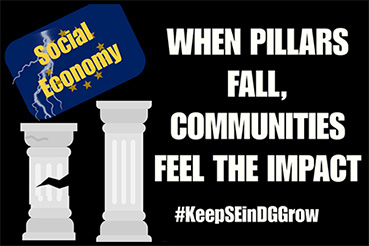Social Economy Europe (SEE) has submitted a manifesto to the Directorate-General for Internal Market, Industry, Entrepreneurship and SMEs (DG GROW) of the European Commission, protesting the closure of its Social Economy Unit. The manifesto, made public on April 30 under the title “The implications of DG GROW abandoning the Social Economy at a critical moment”, was signed by 236 individuals from the social economy sector, various European and national institutions and public administrations, as well as renowned academics and experts.
The statement notes that the closure of the Social Economy Unit, effective from May 1, comes at a “critical moment” and warns that it will have “far-reaching consequences, undermining progress made and halting future developments in this crucial ecosystem.”
As recalled in the letter, DG GROW has played a key role in promoting the social economy – an economic model centered on people, sustainability, and inclusive development. The decision by DG GROW “puts both past and future achievements at risk, especially in a context of geopolitical and economic crisis.”
The signatories argue that, while the European Commission seeks to focus on competitiveness and military defense, this decision overlooks the strategic value of the social economy sector. This model proved resilient during crises such as the 2008 financial collapse and the COVID-19 pandemic. The dissolution of the Social Economy Unit will result in the loss of accumulated knowledge, cancellation of funding, and a setback in support for social economy enterprises.
They claim that excluding the social economy from the Commission’s economic and industrial policies is a “grave mistake”, as this model fosters quality employment, green and digital transitions, and strengthens democracy through participatory governance.
Allies to overcome the EU’s challenges
Given all these reasons, the representatives of the signatory entities and institutions demand: “Ideally, a team responsible for the Social Economy should be maintained within DG GROW, at least by assigning senior Commission officials to oversee the social economy ecosystem—experts to monitor all industrial initiatives and policies impacting the social economy, and to coordinate with the EU’s Social Pillar (within DG EMPL). An adequate budget allocation is also required—certainly not a reduction,” the statement reads.
Finally, they stress that the social economy ecosystem expects “constructive dialogue and concrete responses regarding the future of the industrial ecosystem.”
“We wish to be recognized as allies helping to meet the EU’s challenges,” the manifesto concludes.







